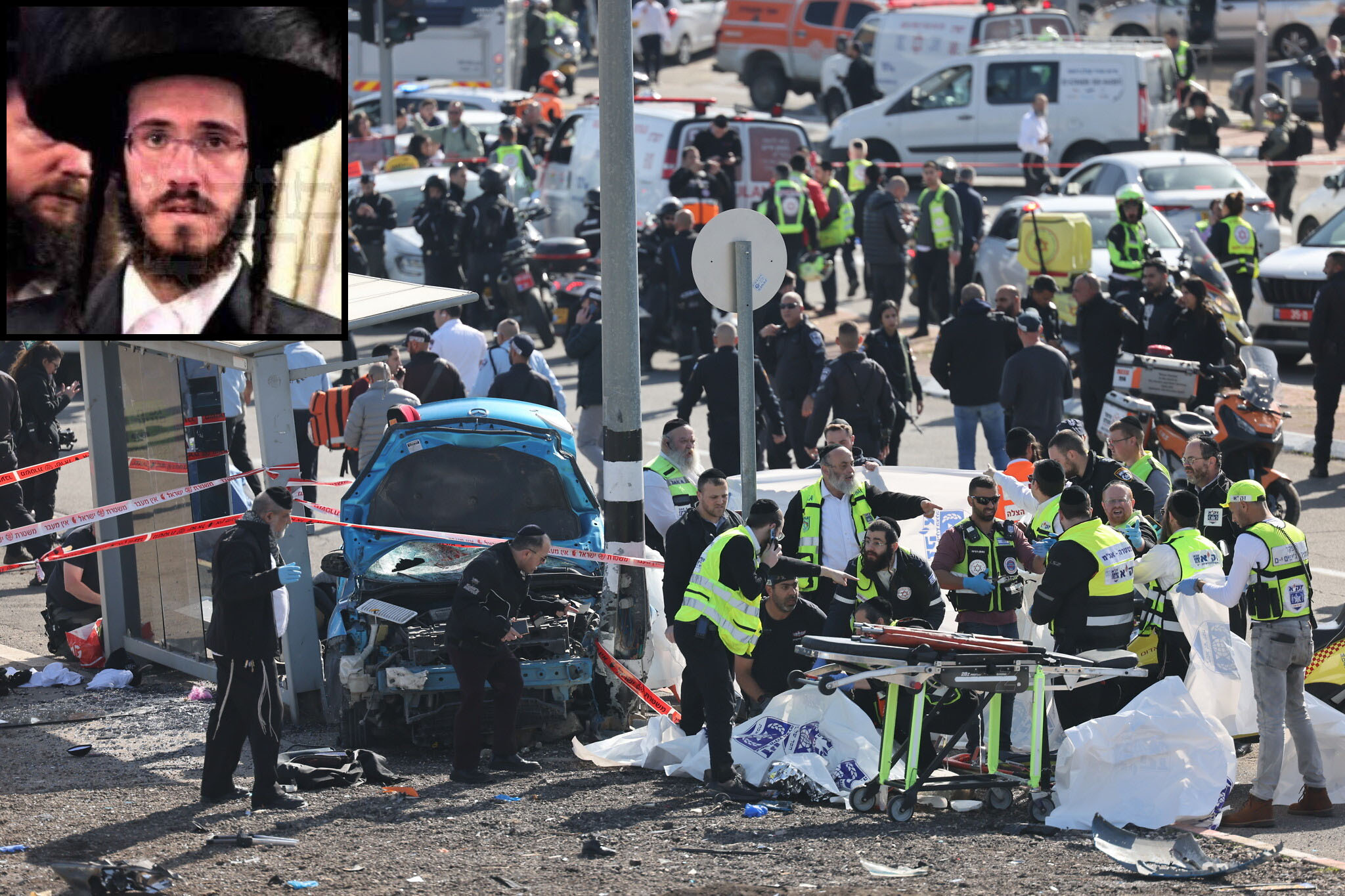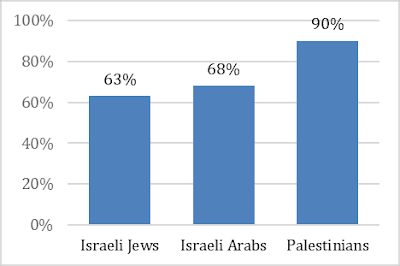Jerusalem attack: 8-year-old dies day after brother killed, father in serious condition
Two children and a young man were killed and four others were injured in a terrorist ramming attack near the Ramot neighborhood of Jerusalem on Friday afternoon.Caroline Glick: It’s not about democracy
The terrorist, identified as Hossein Karaka, a 31-year-old resident of the Isawiya neighborhood of east Jerusalem, rammed into a bus stop at the entrance to the Ramot neighborhood.
An off-duty police officer and other officers who arrived at the scene quickly after the attack shot the terrorist.
A Facebook account reportedly belonging to the terrorist featured a series of posts in recent months glorifying Hezbollah and Palestinian terrorists, including a post calling the terrorist who conducted a shooting attack at the Shuafat checkpoint last year a "hero."
Prime Minister Benjamin Netanyahu decided shortly after the attack to seal and demolish Karaka's home, expressing his condolences to the families of the victims.
"I conducted a security situation assessment and ordered security forces reinforced, arrests made and to act immediately to seal the terrorist's house and demolish it. Our answer to terrorism is to strike it with all our might and deepen our grip on our country even more."
What’s happening in Israel is not what it seems. The left, in all its component parts, is not fighting against an effort by the government and the Knesset to destroy Israel’s democracy.
We know this for three reasons.
First, the leaders of the fight against judicial reform, who claim that if Justice Minister Yariv Levin’s judicial reform package now making its way through the legislative process in the Knesset passes, Israeli democracy will die, know that this isn’t true.
In a past address to the Kohelet Forum, opposition leader Yair Lapid set out a position on judicial activism completely aligned with Levin’s package. Indeed, Lapid’s remarks laid the foundations of the current reform.
In that speech, Lapid said, “I have opposed, and I still oppose, judicial activism of the sort introduced by [former Supreme Court President and the father of Israel’s judicial revolution] Justice Aharon Barak. I don’t think it is right that everything is justiciable. I don’t think it is right for the Supreme Court to change fundamental things in accordance with what it refers to as the judgment of ‘the reasonable person.’ That’s an amorphous and completely subjective definition that the Knesset never introduced to the legal code. It’s not right in my mind that the separation of powers, the sacrosanct foundation of the democratic method, should be breached by one branch of government placing itself above the others.”
Lapid is not alone. Nearly every prominent member of the opposition has made similar statements over the past several years. One of the most incendiary leaders of the protests against judicial reform is former defense minister and IDF chief of General Staff Moshe Ya’alon. Having lost his bid for reelection to the Knesset, Ya’alon restyled himself as a vigilante protest leader. At a press conference this week Ya’alon said the legal reform package will transform Israel “from a democracy into a dictatorship.” He called the Netanyahu government “criminal and illegal.”
Ya’alon called for a general strike and declared that “the thought of the State of Israel as a fascist, racist, messianic and corrupt state” is keeping people up at night.
But in a speech in 2009, when he first entered politics, Ya’alon sang a different tune. Back then Ya’alon railed against the very forces he now claims to represent. “The media here is biased,” he began.










































.jpg)




